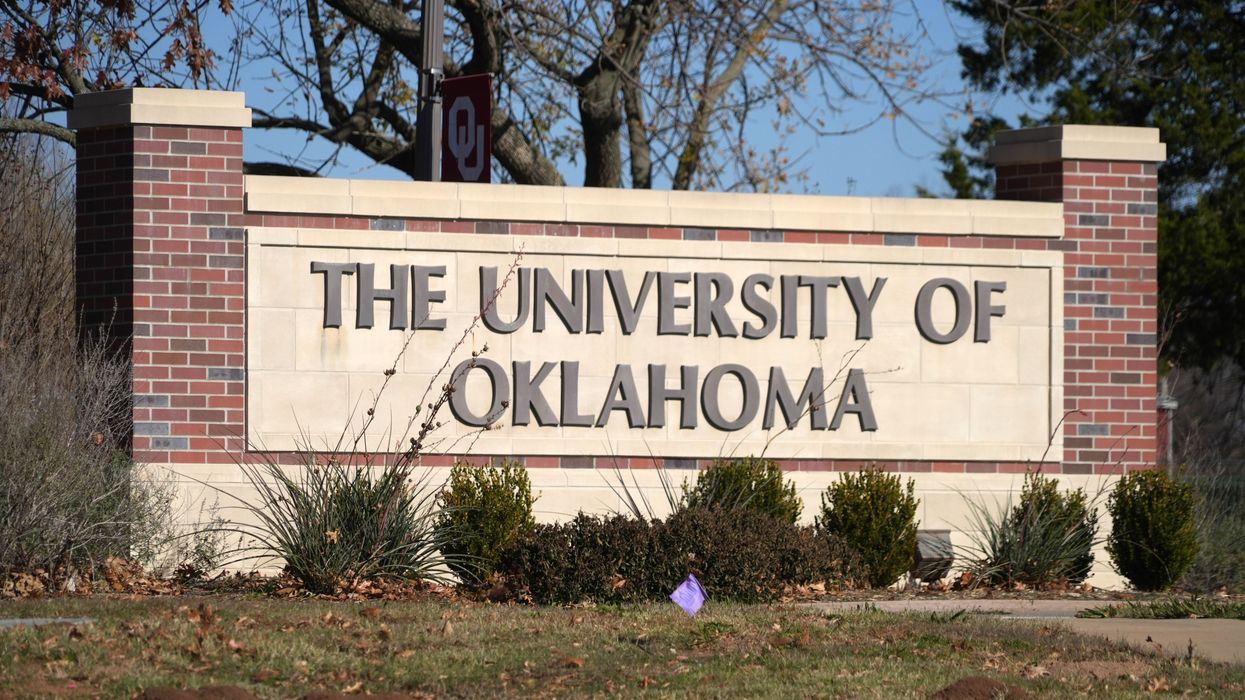May, 20 2014, 12:31pm EDT

For Immediate Release
Contact:
Ben Grossman-Cohen, Senior Media Officer
+1 (202) 777 2907 | M: + 1 (202) 629 6018
Big Ten Food Companies Emitting as Much as the "World's 25th Most Polluting Country"
Spotlight on Kellogg and General Mills; companies not doing enough to tackle climate change
UNITED KINGDOM
The "Big 10", Associated British Foods, Coca-Cola, Danone, General Mills, Kellogg, Mars, Mondelez International, Nestle, PepsiCo and Unilever, should be capable of cutting their combined emissions by a further 80 million tons by 2020, says Oxfam. This would be equivalent to taking all of the cars in Los Angeles, Beijing, London, and New York off the road.
Oxfam's "Standing on the Sidelines" report published today is part of its "Behind the Brands" campaign looking at the social and environmental policies of the world's biggest ten food and beverage companies. Previous "Behind the Brands" campaigns have convinced some of the biggest food companies on the planet to adopt stronger policies against land grabs and to improve women's rights.
The "Big 10" together emit 263.7 million tons of GHGs - more than Finland, Sweden, Denmark and Norway combined. Emissions from their operations account for 29.8 million tons. Of their total emissions, about half come from the production of agricultural materials from their supply chains, yet these emissions are not covered by the reduction targets the companies have set. It is with these agricultural emissions that Oxfam finds the companies being particularly negligent.
Climate change affects raw products prices
Climate change contributes to storms, floods, droughts and shifting weather patterns. This affects food supplies and is putting pressure on prices, causing more hunger and poverty. Experts predict that by 2050 there will be 50 million more people made hungry because of climate change.
Some of the "Big 10" companies admit that climate change is already beginning to harm them financially. Unilever says it now loses $415 million a year, while General Mills reported losing 62 days of production in the first fiscal quarter of 2014 alone because of extreme weather conditions that are growing worse because of climate change. Oxfam projects that the price of key products like Kellogg's Corn Flakes and General Mills' Kix cereal could spike by up to 44% in the next 15 years because of climate change.
The "carbon sink" goal
Oxfam says that agriculture and forests drives around 25% of global GHG emissions and that these emissions are growing as demand for food rises. Experts say that if the world is to keep within a "safe" 2C threshold by 2050, net global emissions from the food sector needs to fall to zero and actually become a "carbon sink" by mid-century - working to remove GHGs from the atmosphere. Yet emissions trends are currently heading in the opposite direction.
"Too many of today's food and beverage giants are crossing their fingers and hoping that climate change won't disrupt the food system imagining somebody else will fix it. The "Big 10" companies generate over $1 billion a day and have great power to influence global food chains. The industry needs to do more to work towards 'zero hunger' in the world while undergoing a revolution in their production methods," said Oxfam executive director Winnie Byanyima.
Unilever, Coca-Cola, and Nestle were all mentioned as being relatively more assertive in their policies and actions to tackle climate change, though they all still had a lot of room for improvement.
Oxfam singled out Kellogg and General Mills as two of the worst on climate and is calling on them to lead the sector towards more responsible policies and practices. Oxfam says they should disclose their agricultural emissions and biggest polluting suppliers, set targets to cut emissions from their supply chains and speak out more to other industries and governments to address the climate crisis.
Oxfam's investigation shows:
- All of the 'Big 10' recognize the need to reduce indirect agricultural emissions within their supply chains and seven of them annually measure and report on these emissions through the Carbon Disclosure Project- but not Kellogg, General Mills or Associated British Foods;
- Only Unilever and Coca-Cola commit to reduction targets that address emissions in their supply chains, but none of the 'Big 10' have committed to clear reduction targets specific to their agricultural emissions;
- None of the 'Big 10' require their suppliers to set targets to reduce emissions;
- All of the 'Big 10' have set targets to reduce emissions from their operations, but these are often not science-based and don't reflect their full contribution to the problem.
- Several of the 'Big 10' companies have committed to ambitious timelines to end deforestation in their supply chains for palm oil but only Mars and Nestle extend these policies to other commodities that are drivers of deforestation and land use change;
- An Indonesian company that sells palm oil to Cargill, a supplier of Kellogg and General Mills and other food industry giants, is allegedly involved in burning forest land to produce palm oil and contributing to a massive forest fire that alone created greenhouse gas emissions equivalent to the annual emission from 10.3 million cars.
- With Unilever, Coca-Cola and Mars being the exceptions, the companies are not doing enough to publicly urge government and other businesses to do more to tackle climate change, including by challenging damaging or inadequate positions of trade associations that represent them.
"The food industry has a moral imperative and a business responsibility to dramatically step up its efforts to tackle climate change," said Byanyima. "The 'Big 10' companies are failing to use their power responsibly and we will all suffer the consequences. Kellogg and General Mills in particular are not doing their part. These companies should be leading the fight to help stop climate change from making people hungry. It's time for them to get off the sidelines."
Oxfam International is a global movement of people who are fighting inequality to end poverty and injustice. We are working across regions in about 70 countries, with thousands of partners, and allies, supporting communities to build better lives for themselves, grow resilience and protect lives and livelihoods also in times of crisis.
LATEST NEWS
University of Oklahoma Removes Teacher Over Failing Grade for Student's Bible-Based Gender Essay
"So if a geology student at the University of Oklahoma says in class the earth is 6,000 years young because that’s what they believe, a geology teacher can’t say squat?" asked one critic.
Dec 23, 2025
A decision from the University of Oklahoma on Monday left some asking whether the research university can still be seen as having "academic standards" after an instructor was removed from teaching duties for giving a failing grade to a student who focused on her own religious beliefs about gender in a paper for a psychology course.
The university released a statement saying the graduate teaching assistant in the course, Mel Curth, had been "arbitrary" in the grading of a paper by student Samantha Fulnecky, who wrote an assigned essay about an article the class read about gender, peer relations, sterotyping, and mental health for the course.
Fulnecky's paper cited the Bible and focused heavily on her beliefs that "God made male and female and made us differently from each other on purpose and for a purpose."
"Women naturally want to do womanly things because God created us with those womanly desires in our hearts. The same goes for men," she wrote in the essay, adding that "society pushing the lie that there are multiple genders and everyone should be whatever they want to be is demonic and severely harms American youth."
Curth, who is transgender, gave Fulnecky a zero for the essay and emphasized in her response that she was "not deducting points because you have certain beliefs," but because the paper "does not answer the questions for the assignment, contradicts itself, heavily uses personal ideology over empirical evidence in a scientific class, and is at times offensive."
"Using your own personal beliefs to argue against the findings of not only this article, but the findings of countless articles across psychology, biology, sociology, etc. is not best practice," Curth wrote.
Another instructor concurred with Curth on the grade, telling Fulnecky that "everyone has different ways in which they see the world, but in an academic course such as this you are being asked to support your ideas with empirical evidence and higher-level reasoning."
On Monday, the university suggested Curth's explanation for the grade was not satisfactory.
"What is there to say other than that the University of Oklahoma has no academic standards?" asked journalist Peter Sterne in response to the university's statement.
One civil rights advocate, Brian Tashman, added that the school's decision opens up numerous questions about how academic papers that focus on a student's religious beliefs will be graded in the future.
"So if a geology student at the University of Oklahoma says in class the earth is 6,000 years young because that’s what they believe, a geology teacher can’t say squat?" asked Tashman. "What if their religion teaches the earth is flat? Or that all of mankind’s problems can be traced back to Xenu?"
Curth had initially been placed on administrative leave earlier this month when Fulnecky filed a religious discrimination complaint with the school.
Fulnecky's allegations drew the attention of the school's chapter of Turning Point USA, the right-wing group that advocates for conservative political views on college and high school campuses. The group is closely aligned with the Trump administration. Vice President JD Vance spoke at Turning Point's AmericaFest last weekend—and used the appearance to tell young conservatives that their movement should not root out antisemitism with "purity tests"—and the assassination of its founder, Charlie Kirk, earlier this year, was followed by the White House's efforts to crack down on what it called left-wing extremism, with President Donald Trump directly blaming the "radical left" for Kirk's killing before a suspect was identified.
While Fulnecky garnered support from the Turning Point chapter, hundreds of her fellow students rallied in support of Curth in recent weeks, chanting, "Protect Our Professors!" at a recent protest.
A lawyer for Curth said Monday that she is "considering all of her legal remedies, including appealing this decision by the university."
“Ms. Curth continues to deny that she engaged in any arbitrary behavior regarding the student’s work," Brittany M. Stewart told the Washington Post.
The university did not release its findings of the religious discrimination investigation it opened into Fulnecky's case.
The school's decision to remove Curth from teaching duties, said author Hemant Mehta, "is what academic cowardice looks like."
Keep ReadingShow Less
State AGs Sue Vought Over 'Unlawful' Scheme to Bankrupt Consumer Protection Bureau
"By refusing to fund the CFPB, even when legal and appropriate funding mechanisms are available, the Trump administration has sharpened its message that it does not care about affordability."
Dec 23, 2025
A coalition of attorneys general from across the US sued White House budget chief Russell Vought on Monday over his effort to completely starve the Consumer Financial Protection Bureau of funding, a ploy that—if successful—would eliminate a key path of recourse for Americans harmed by corporate abuses.
The lawsuit was filed in a federal court in Portland, Oregon by the top law enforcement officials of 20 states—including New York, California, Maine, and Hawaii—and the District of Columbia. The suit notes that Vought, in his capacity as acting director of the consumer bureau, "has worked tirelessly to terminate the CFPB’s operations by any means necessary—denying plaintiffs access to CFPB resources to which they are statutorily entitled."
The attorneys general specifically challenge Vought's "unlawful" refusal to request CFPB funding from the Federal Reserve. Under the law that established the consumer bureau, the agency receives funding from the Fed rather than congressional appropriations.
Vought has advanced a tortured definition of "earnings" to argue the Fed lacks funds from which the CFPB can draw, leaving him with no choice but to allow the agency he and his far-right allies have long opposed to languish.
The new lawsuit argues that Vought's position violates the Administrative Procedure Act and the US Constitution. If allowed to stand, Vought's refusal to seek CFPB funds would "make it all but certain that the CFPB will run out of funding completely in January 2026."
California Attorney General Bonta said in a statement Monday that the Trump administration’s "latest effort to destroy the CFPB means that hundreds of thousands of consumer complaints will fall on deaf ears."
"By refusing to fund the CFPB, even when legal and appropriate funding mechanisms are available, the Trump administration has sharpened its message that it does not care about affordability, that it does not care to be on the side of families and working Americans," said Bonta.
The CFPB has been a target of big banks and other powerful corporations since its creation in the wake of the 2008 financial crisis. The agency's success—it has returned more than $21 billion to consumers since 2011—has only intensified efforts by corporate-friendly lawmakers and right-wing bureaucrats to gut it.
Since taking control of the CFPB earlier this year, Vought has effectively shut down bureau operations and signaled a lax approach to enforcement.
US Sen. Elizabeth Warren (D-Mass.), an architect of the CFPB, applauded the state attorneys general for taking legal action against Vought.
“The Trump administration’s latest illegal attempt to shut down the Consumer Financial Protection Bureau will hurt families in every state across the country—and now states are fighting back," said Warren. "Today’s new lawsuit underscores how illegally starving the agency of funding would turn off the consumer complaint database that has helped millions of Americans at the end of their rope after getting scammed."
"If courts uphold the law," she added, "they’ll reject this attempt to sideline the financial cop on the beat that has returned more than $21 billion directly to Americans cheated by big banks or giant corporations.”
Keep ReadingShow Less
Watch 60 Minutes 'Inside CECOT' Segment Blocked by CBS News Chief Bari Weiss
"Watch fast, before Corus gets a call from Paramount Skydance."
Dec 22, 2025
A social media user on Monday shared at least part of a "60 Minutes" segment about a prison in El Salvador—where the Trump administration sent hundreds of migrants—after CBS News editor-in-chief Bari Weiss controversially blocked its release.
"Canadians, behold! (And Americans on a VPN.) The canceled '60 Minutes' story has appeared on the Global TV app—almost certainly by accident," Jason Paris wrote on Bluesky, sharing a link to download a nearly 14-minute video of the segment, which has since been uploaded to various places on the internet.
The segment is titled "Inside CECOT," the Spanish abbreviation for El Salvador's Terrorism Confinement Center.
Watch:
"Watch fast, before Corus gets a call from Paramount Skydance," Paris added. Corus Entertainment owns Global TV. Paramount and Skydance merged earlier this year, after winning approval from the Trump administration. Weiss, a right-wing pundit, was then appointed to her position.
In a leaked email, "60 Minutes" correspondent Sharyn Alfonsi wrote that "Bari Weiss spiked our story," and "in my view, pulling it now, after every rigorous internal check has been met, is not an editorial decision, it is a political one."
Keep ReadingShow Less
Most Popular


